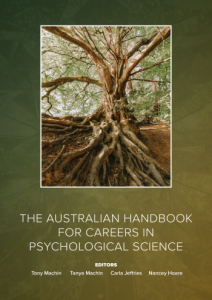Decent Work and Economic Growth
“To promote inclusive and sustainable economic growth, employment and decent work for all.” [1]
UniSQ Library provides opportunities and support for productive employment that supports diverse knowledge and backgrounds. This includes:
- Providing student opportunities for leadership and library employment,
- Facilitating placements for library and information science students,
- Investing in staff professional development opportunities,
- Creating spaces and resources for innovation (the Makerspace), and
- Promoting flexible working conditions and safety.
Working in the UniSQ Library as a student
Ryan Heuser (UniSQ Student & Library Officer)
I started working in the Library February this year. I had a second job but had lost it due to the pandemic. I wanted to gain experience in a professional environment, but it was difficult to be trying to find work during the pandemic. In my second semester I was able to start working in the Library and was able to keep working during lockdowns because of the flexible working arrangement provided. In my work I’m representing the UniSQ Library and communicating with other staff, professionals, and students. I’m studying to be an accountant and need this experience to be talking with future clients. There are plenty of staff and students who I’ve been able to have conversations with and to develop professional relationships with, all from my work in the Library.
Working in the Library has also taught me a lot about using the Library’s resources. In my first semester I spent approximately $450 on textbooks. This semester I only spent $100 on my textbooks because I knew what online Library resources were available to me. Before this I was overwhelmed with the university experience and trying to get a feel for how I should approach the work. Once I started working in the Library I began to discover what other resources were available and delve into these. It hasn’t just helped with employment, but has helped me be more efficient in my study and find professional contacts who can support me in my studies.
PASS Leader Development and Growth
Ben Ingram (Coordinator, Peer-Learning)
What is PASS?
Peer Assisted Study Sessions (or PASS) is an academic support program that’s embedded in challenging university courses. The program employs a student PASS leader, who has previously excelled in the course, to facilitate group study sessions for students who are currently undertaking the course. PASS leaders assist others in strengthening their understanding of course concepts, develop effective academic skills and become more familiar with the University Environment.
The PASS program employs 49 PASS leaders to facilitate PASS in over 40 courses from locations as far south as Melbourne and North to Bowen. The PASS leaders reflect the geographically dispersed nature of the University of Southern Queensland’s student cohort and delivering PASS online has enabled PASS to be facilitated by students anywhere in Australia.
Leaders complete the equivalent of two days training prior to commencing their role as a PASS leader. To make training more flexible for leaders a package of 5 self-paced modules were developed that a range of topics including: Philosophy and History of Peer Learning at USQ; The Role of the PASS leader; Session Planning; Facilitating PASS; and Professionalism.
PASS Leaders described how they had learnt to communicate, build rapport, and grow in their confidence. The live training was delivered to model a PASS style session with collaborative and active learning activities throughout the session. Facilitating the workshops in this way helps to demonstrate how to engage students through various technologies and formats.
Training and development also focused on how to enable collaboration in the online space. Where collaboration in a face to face environment was more straight forward, training sought to address this by incorporating the training around the use of online tools such as Miro, Mentimeter, Padlet and Kahoot! to enable collaboration. As a result leaders saw growth in their digital literacy skills and recognised how being a PASS leader will help them in their future career.
The Australian Handbook for Careers in Psychological Science
Adrian Stagg , Manager (Open Educational Practice); Nikki Andersen (Open Education Content Librarian)
In 2022, UniSQ Library published an open textbook titled ‘The Australian Handbook of Careers in Psychological Sciences’ edited by Tony Machin, Tanya Machin, Carla Jeffries and Nancey Hoare. This text covers career opportunities for undergraduate students studying psychology. Despite psychology being one of the most popular undergraduate programs, students often report not knowing how training in psychology relates to careers. With chapters written by experts across Australia, this book explores just some of the many ways that students can apply their training in psychological science across a variety of careers and sectors. Engaging with lecturers and researchers nationally, the text illuminates emerging fields to which students could aspire and concurrently connects readers with up-to-date research and knowledge of the discipline.
Furthermore, the book is embedded within the undergraduate psychology degree at UniSQ, and partner institutions to provide students with authentic choice and free-to-access content to leverage for informed choices. Since publication, the book has been accessed almost 10,000 times, and the free and open nature of the text enhances the potential readership by reducing barriers to access and use.
- United Nations. (n.d.). Decent work and economic growth: Why it matters. https://web.archive.org/web/20220805211452/http://www.un.org/sustainabledevelopment/wp-content/uploads/2016/08/8_Why-It-Matters-2020.pdf ↵


